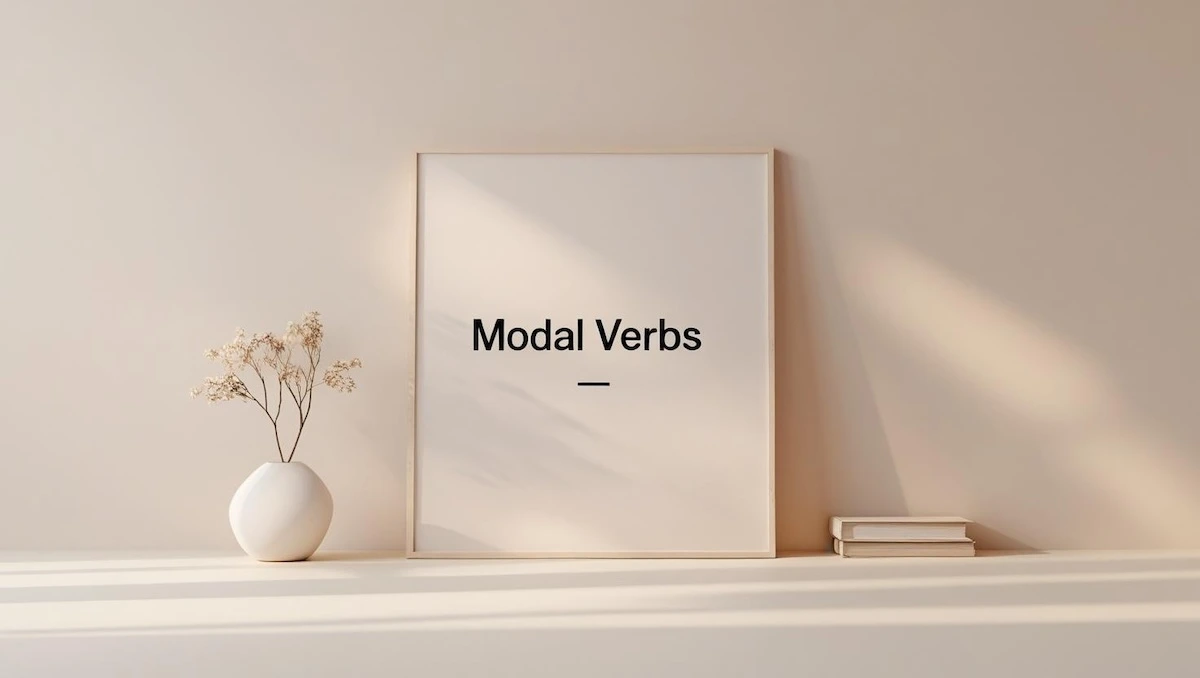Modal verbs are an essential part of English grammar that help to express possibility, necessity, ability, permission, or obligation. These verbs do not stand alone and are used in combination with the base form of other verbs. Whether you’re preparing for an English proficiency test, like the International English Test (IET), or simply looking to improve your English grammar, mastering modal verbs is crucial for clear and effective communication.
In this article, we will break down what modal verbs are, their types, and how to use them correctly in sentences. We’ll also discuss how the IET can help assess your English skills, including your knowledge of modal verbs.
What Are Modal Verbs?
Modal verbs are auxiliary (helping) verbs that express the attitude of the speaker toward the action of the main verb. Unlike regular verbs, they don’t change according to the subject, and they are always followed by the base form of a main verb.
Examples of Modal Verbs:
- Can
- Could
- May
- Might
- Shall
- Should
- Will
- Would
- Must
- Ought to
- Need
The Different Types of Modal Verbs
Each modal verb serves a specific purpose. Let’s explore the various ways these verbs are used in English.
1. Ability
“Can” and “could” are used to talk about the ability to do something.
- Can (present ability):
I can swim. - Could (past ability or polite request):
When I was younger, I could run very fast.
2. Permission
“Can,” “could,” “may,” and “might” are used to ask for or give permission.
- Can (informal permission):
Can I go to the bathroom? - May (more formal permission):
May I leave early today? - Might (less certain permission):
You might be able to join the meeting later.
3. Possibility
“May,” “might,” and “could” are used to talk about possibility.
- May (higher probability):
It may rain tomorrow. - Might (lower probability):
She might go to the party later. - Could (possible under certain conditions):
That could be the answer to your question.
4. Obligation and Necessity
“Must,” “have to,” and “should” are used to indicate necessity or obligation.
- Must (strong obligation):
You must wear a helmet while riding a bike. - Have to (general necessity):
I have to finish this report by tomorrow. - Should (advice or mild obligation):
You should take an umbrella with you.
5. Advice
“Should” and “ought to” are used to give advice.
- Should:
You should study for the test. - Ought to (more formal):
You ought to apologize for being late.
6. Future Predictions
“Will” and “shall” are used to talk about future events or predictions.
- Will (future predictions or promises):
I will call you later. - Shall (often used in formal or legal contexts):
I shall return the book by next week.
How Modal Verbs are Tested in the International English Test (IET)
The International English Test (IET) is an excellent way to assess your knowledge of English grammar, including modal verbs. The IET evaluates your proficiency in several areas of English, including speaking, writing, and grammar.
During the test, you will likely encounter questions that test your understanding of modal verbs in both written and spoken English. The IET uses advanced AI technology to evaluate your responses, ensuring that you receive a fair and accurate assessment of your English level.
The test is aligned with CEFR levels, so depending on your score, you will receive a certificate that clearly reflects your proficiency level, ranging from A1 (beginner) to C2 (proficient). Whether you are preparing for the IET or any other English exam, understanding how to use modal verbs is essential for achieving a high score.
How to Improve Your Understanding of Modal Verbs
Here are some tips to help you master modal verbs:
1. Practice Regularly
The best way to understand and use modal verbs is through practice. Write sentences using different modal verbs and try using them in daily conversations. For instance, ask for permission, give advice, or express obligation using the correct modal verb.
2. Review Common Modal Verb Phrases
Familiarize yourself with common phrases that use modal verbs. For example:
- Can: Can I help you?
- Must: You must be here by 9 am.
- Should: You should eat more vegetables.
3. Use Modal Verbs in Context
Modal verbs are used in a variety of contexts. Pay attention to how native speakers use them in movies, books, or podcasts. Notice the different tones and the nuances in meaning based on the context.
4. Take Practice Tests
If you’re preparing for the International English Test (IET) or any other English proficiency exam, take practice tests. The IET offers practice tests that help you familiarize yourself with the types of questions you’ll encounter.
Conclusion
Modal verbs are a fundamental part of English grammar, and understanding how to use them correctly is essential for effective communication. Whether you’re preparing for an English proficiency exam, like the International English Test (IET), or simply improving your English skills, mastering modal verbs will help you express ideas, requests, obligations, and possibilities with confidence.
Start practicing today and consider taking the IET to verify your English proficiency and receive a certificate that reflects your skills. With consistent effort and practice, you can master modal verbs and improve your overall English fluency.
Keywords: modal verbs, English grammar, International English Test, IET, CEFR levels, English proficiency, language skills, speaking test, writing test.




